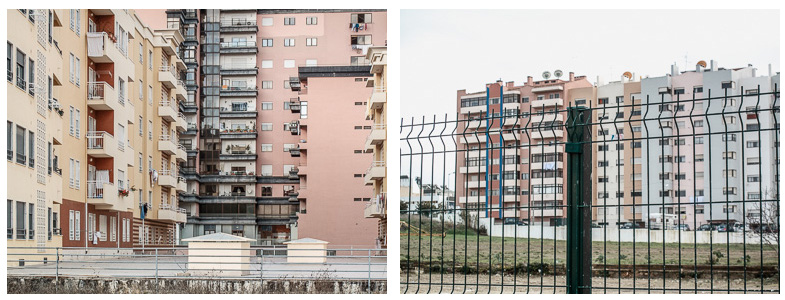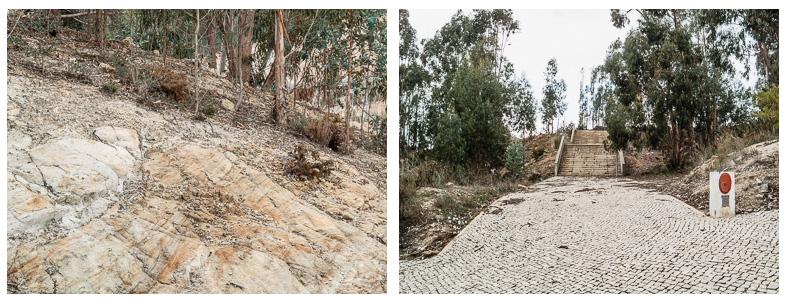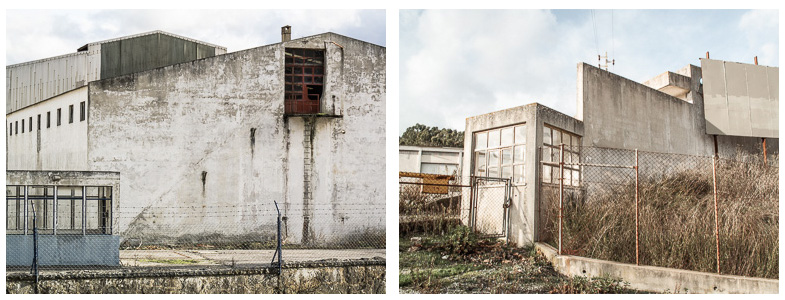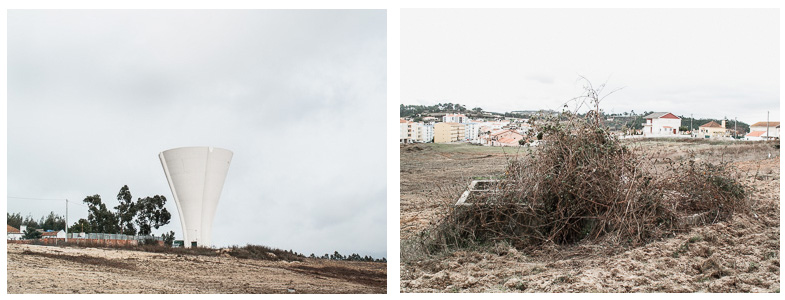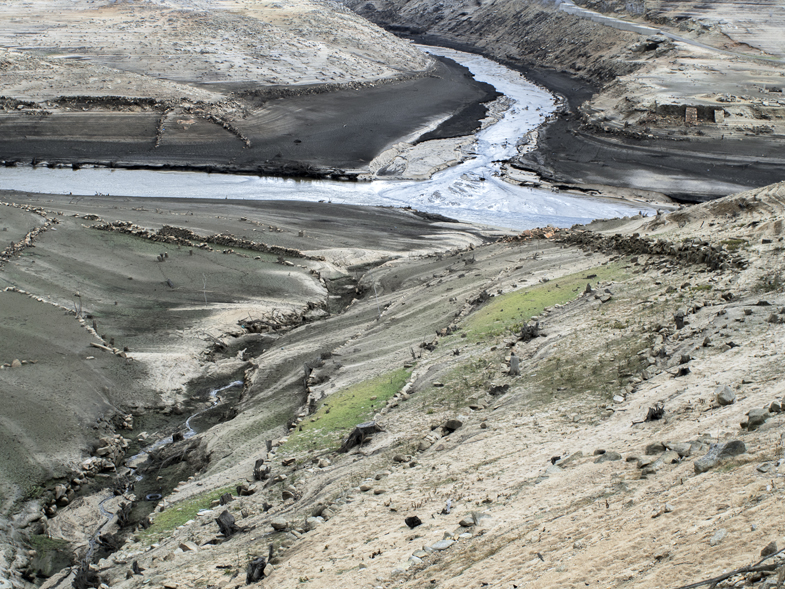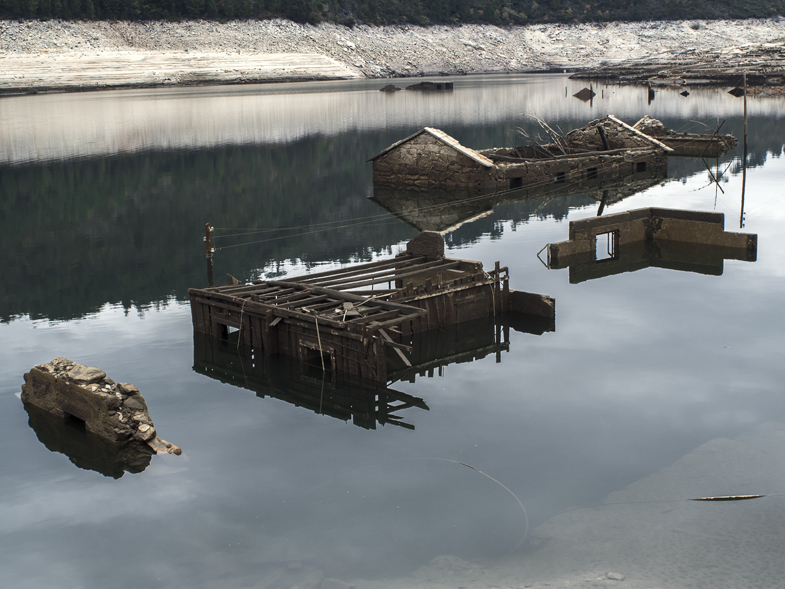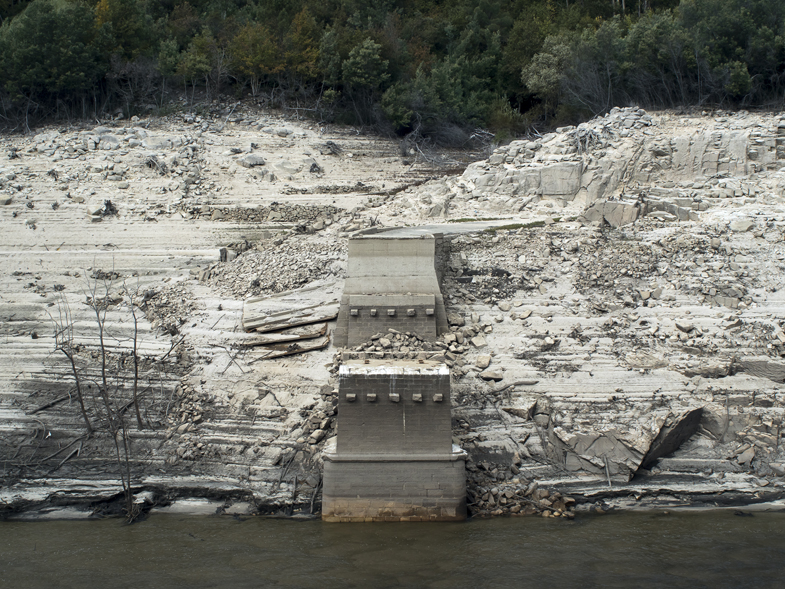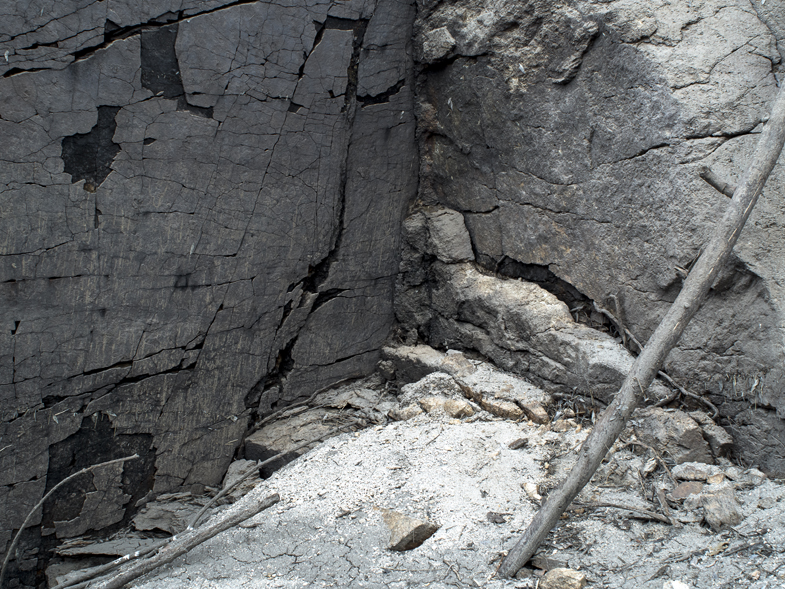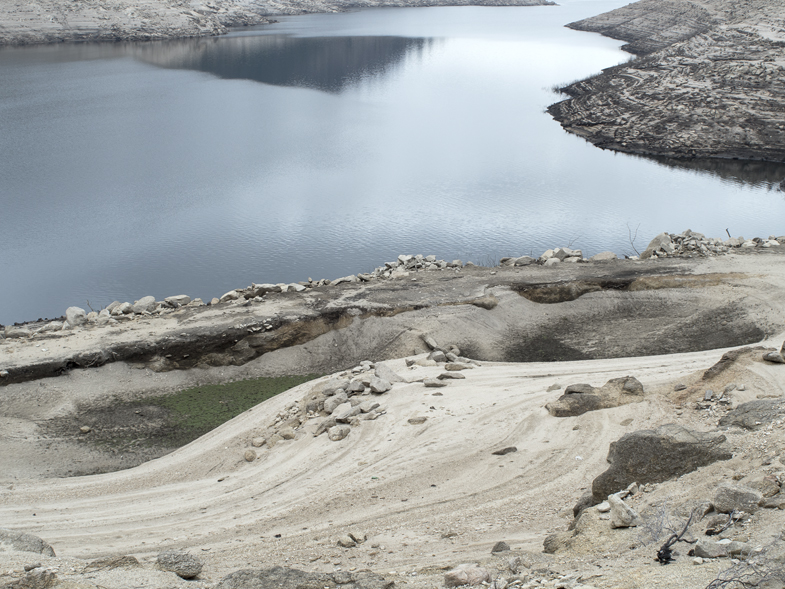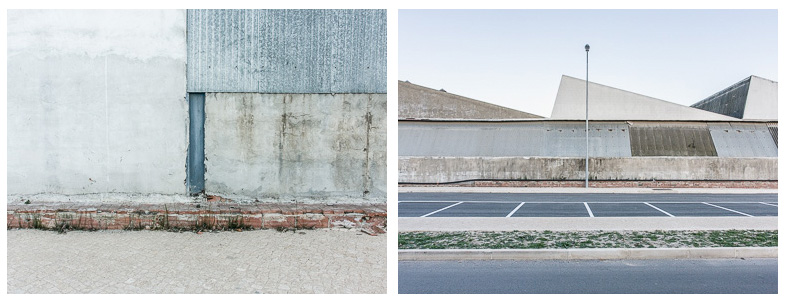
There is always a subjective aspect in landscape, something in the picture that tells us as much about what is in front of the camera, and who is behind it. — Robert Adams
The inspiration to make these pictures came through this phrase from Robert Adams, a photographer whose pictures were part of the New Topographics exhibition of the 1970’s, in which some paradigms of landscape photography were questioned. The phrase also sums up beautifully the paradox of subjectivity and objectivity in photography.
These images depict the city where I live, Torres Vedras, one of them illustrating specific characteristic of this territory, in its planning, use, morphology, the other having been made immediately after the first, at its opposed plane of 180 degrees. From the second picture comes an aleatory, non-thought, non-determined photography, the pair granting an unexpected association and contrast between the identity of the place, as well as referencing ontological aspects of photography linked to objectivity, subjectivity, and canons of aesthetic reception of the landscape.
— João Henriques, Torres Vedras, Portugal
